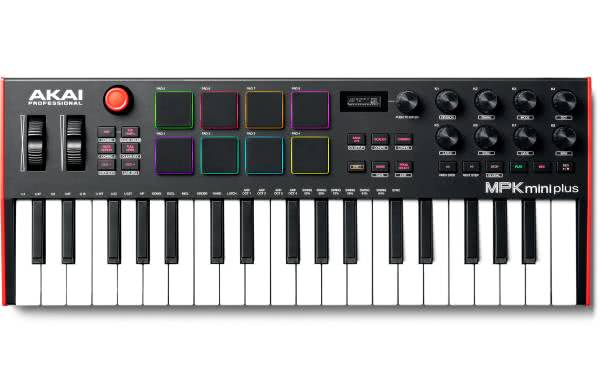Portable studios are really a thing these days as music producers often find inspiration while traveling, and having a large studio is not even a requirement anymore since most DAWs come with all the essential tools for mixing or at least preparing your tracks for the master.
Although nowadays DAWs offer so much functionality that physical gear is not even necessary anymore (if you are not going on the standalone path), MIDI controllers still have popularity as they offer a more convenient and tangible method for materializing your ideas as a music producer.
AKAI Professional has always been amongst the top brands when it comes to studio gear, from the legendary MPC grooveboxes to the APC and MPK series MIDI controllers, they are all favorites for many kinds of music producers.
The new upgraded AKAI MPK Mini Plus takes the original MPK Mini to a next level, with an extended 37 key (3 octave) keyboard, a built-in sequencer, MIDI, CV/Gate connections, and adds a pitchwheel and a modwheel.
With its improved connectivity it is more than just a DAW controller, as it can also control other standalone synthesizers via the CV/Gate connections.
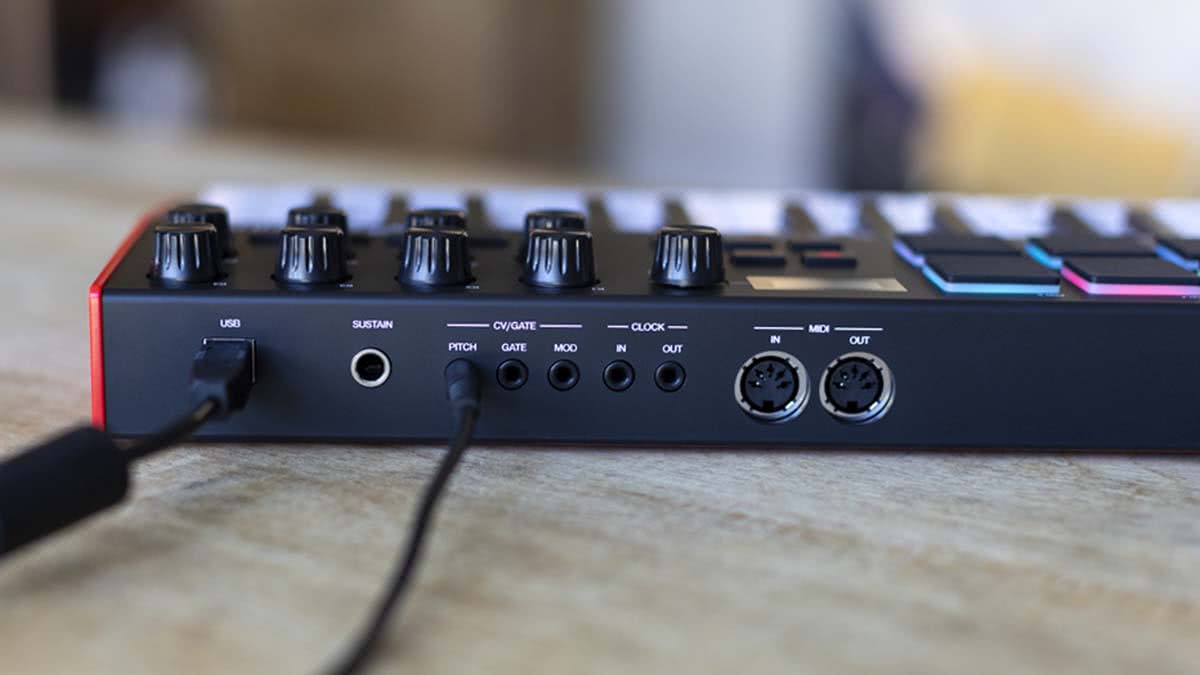
It is worth to note that unlike the MPK Mini Play, the Mini plus does not come with onboard sounds.
The main feature is the 2nd generation extended keyboard from 25 keys to 37 keys. Although it is much more comfortable to work on an extended keybed, it does affect portability to some extent, if you are constantly carrying your controller around you may want to rethink upgrading to the Mini Plus as it is 14 cm wider. If space is no issue, you will definitely like the new dynamic keybed.
They feel pretty much like other mini keys, and the extra keys make you feel less restrictive when it comes to performance, or looking for chords, especially if you can play the piano. The keys are decent quality, similar to the Arturia Minilab, probably a little less smooth, but very comfortable to play, given the limitations in size.
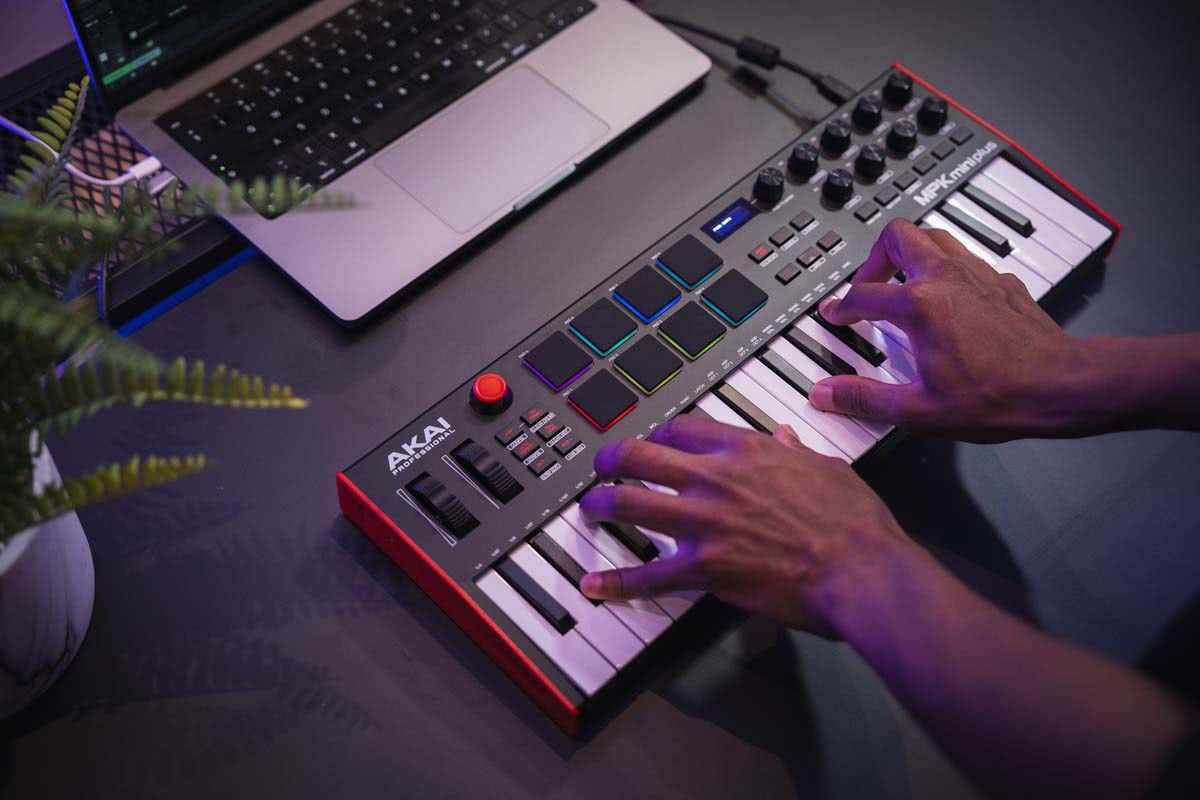
With the new Chords Mode you can create chords with the touch of a single key. If you want to play notes only in a specific scale - like C major - you can do this by enabling the Scale Mode and the controller will disable all keys that are not in that specific scale - a very handy tool when looking for notes.
Considering the size of the unit, manufacturers probably should have thought about adding a mixer section, but we like that it doesn’t feel jammed at all.
The pads are the same MPC pads as on most AKAI MIDI controllers, they have best-in-class responsiveness and can be used for triggering drum kits within your DAW.
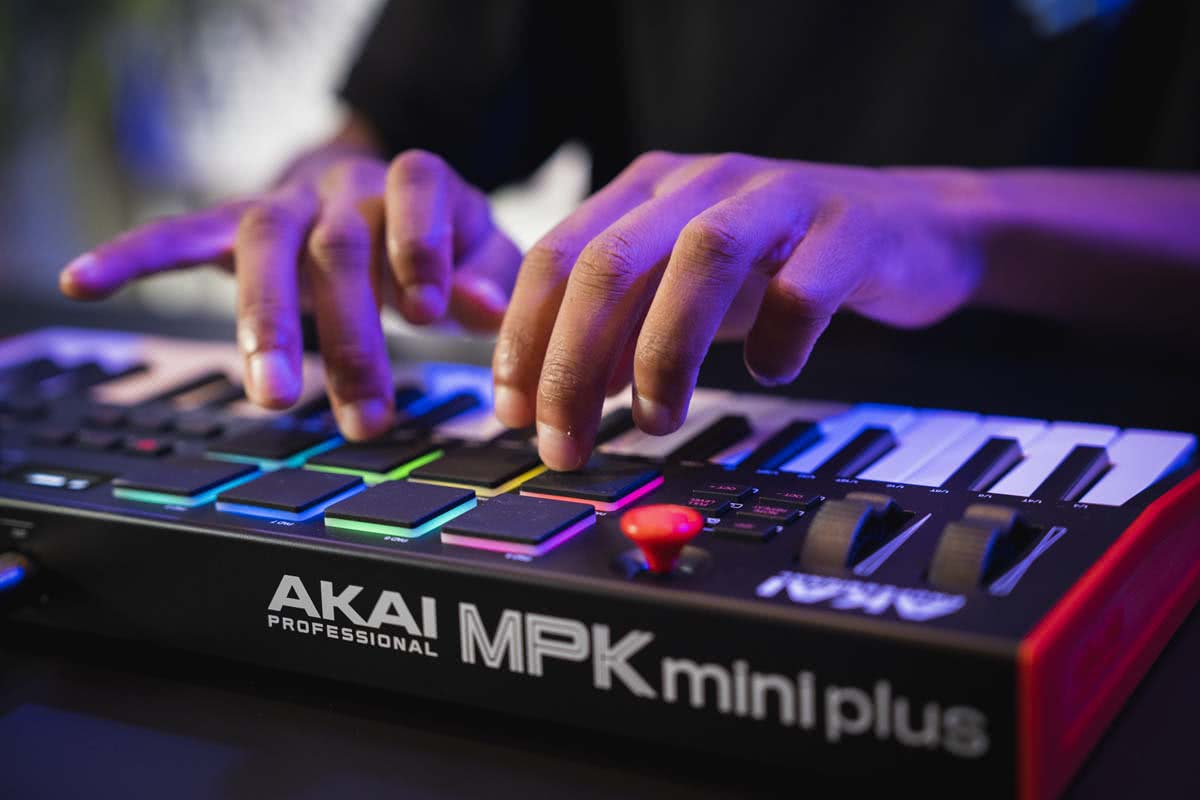
The new transport controls are one thing that we definitely love as they allow us to navigate through our projects without using the mouse or the trackpad, it comes with Play, Stop, Record, Loop, and Locator buttons, and we really expected to include this in the Plus version as even some of the standard MPK Mini’s competitors, such as the M-Audio Oxygen PRO 25 comes with transport controls at a similar price tag.
The MPK Mini comes with a modwheel which allows you to add expression or modulate elements of your sounds and samples. You can imagine this as modulating an LFO in order to produce a harmonic effect, such as distortion or vibrato. As modwheels usually come in pair with a pitchwheel, it is no different in the case of the MPK Mini Plus. These new features free up some functions for the joystick on the top left side, as this was used by standard for pitch and modulation on the MPK Mini, but now it can be assigned to other functions in your DAW.
Everything else is the same traditional stuff you get on other “Mini” size MIDI keyboards, such as the 8 knobs, Arpeggiator, Octave up and Octave down, Note Repeat, Tap Tempo and Full Level.
The MPK Mini Plus comes with a sequencer for pads and keys. You can press the SEQ button and start tapping the keys, and the sequencer will replay the notes in the same sequence and put it on a loop. Be careful as you need to save the sequence in your DAW, as it doesn’t get stored on the unit itself.
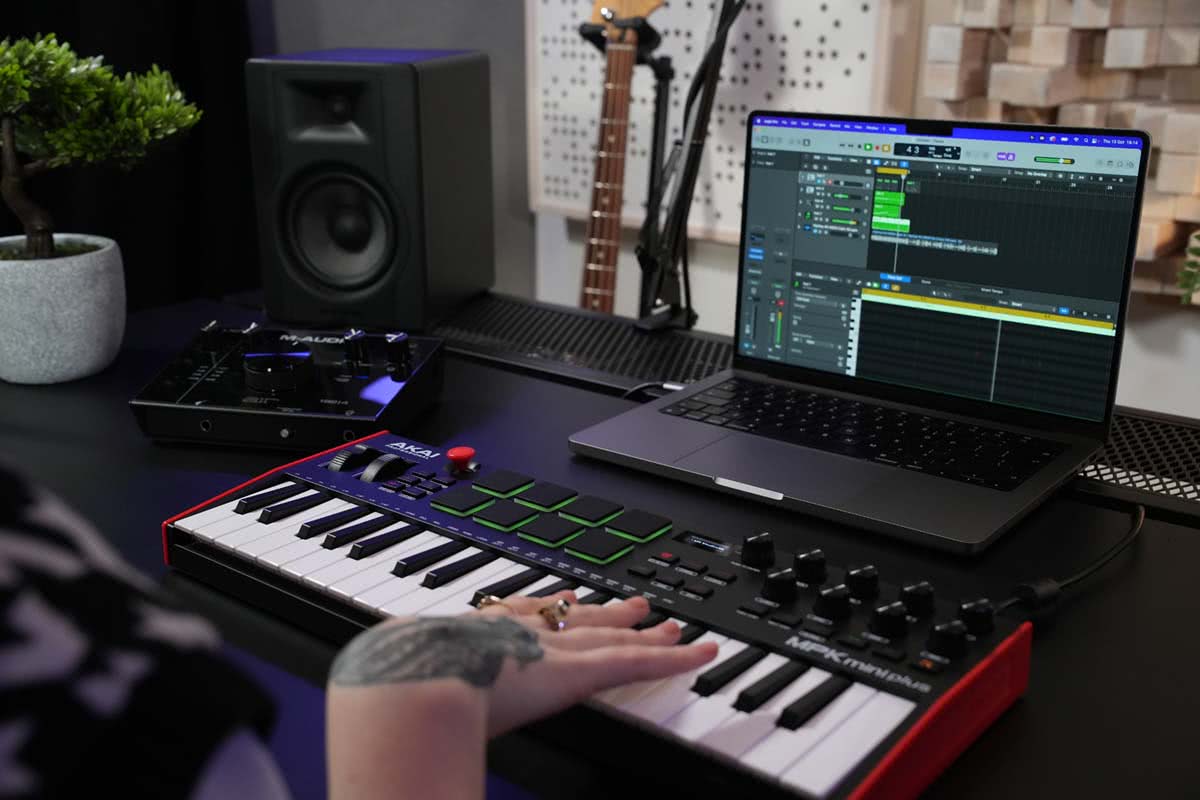
The 8 knobs control various parameters by standard on the selected plugin within your DAW, but you can control other things as well if you are willing to set them up differently.
The MPK Mini plus is a fantastic new MIDI keyboard if you frequently go up and down between octaves with the keys, without having to constantly adjust the octave range, as the 37 keys provide decent headroom even for piano professionals. It has all the essential features you may need in your studio and its ability to control other synths makes it the perfect choice if you want to add a very flexible control unit to your studio, at a friendly price tag.

